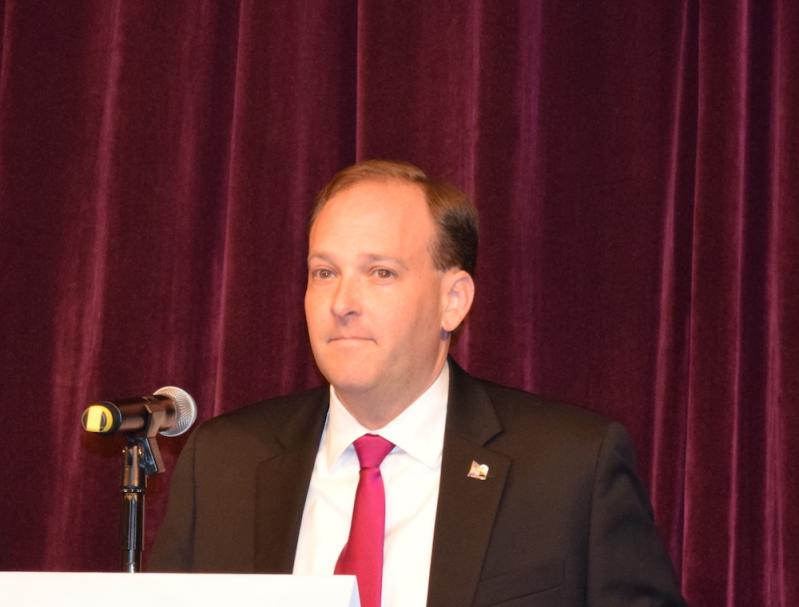Representative Lee Zeldin of New York's First Congressional District has been appointed to the White House Task Force on Reopening the Economy.
The task force's stated mission is to "work together with the White House to chart the path forward toward a future of unparalleled American prosperity," amid an economic contraction that has seen 22 million new claims for unemployment insurance in the past four weeks.
Mr. Zeldin, a member of the Congressional Coronavirus Task Force, is one of President Trump's most ardent supporters. On Thursday, he wrote on Twitter that he was "honored to have just been appointed by @realDonaldTrump to the @WhiteHouse Task Force on Reopening the Economy. We need to get our economy roaring again. Honored to get to work to do so precisely & carefully, avoid another outbreak & help our nation emerge stronger than ever!"
For weeks President Trump has urged a "reopening" of the country during the Covid-19 pandemic, against the advice of several governors and health professionals. The governors of West Coast and of northeastern states have respectively formed blocs intended to coordinate their own relaxing of the lockdown protocols aimed at reducing transmission of the highly contagious coronavirus. Other governors have started to announce plans for businesses to resume operation on May 1. On Thursday, Gov. Andrew Cuomo of New York announced the extension of the state's shutdown until at least May 15.
Some of the president's supporters have taken to civil disobedience, publicly gathering and carrying firearms outside their statehouse, as happened in Michigan. The New York Times reported on Friday that Gov. Gretchen Whitmer said that she hoped to loosen some of that state's strict regulations on May 1. Michigan trails only New York and New Jersey in the number of deaths related to Covid-19, according to The Times.
A resumption of business carries risk of a prolonged pandemic or additional waves of infection; widespread testing for coronavirus in the United States lags far behind that in other countries, and little is known about the virus's long-term impacts on human health.

